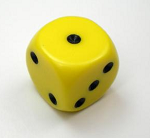|
Harrow posted:Lots of Powered by the Apocalypse systems even make "roll a second character" and/or "retire this character to safety and create a new one" explicit advancement options you can take. I don't think that comes up in Dungeon World It's an option instead of level 11. So in practice, it doesn't really come up.
|
|
|
|

|
| # ? Jun 1, 2024 09:10 |
|
My characters have somehow made it to level, like, 3, so Iím proud of them. Gonna be bringing them all the Liberi Gothica books  Edit: which version of the Witch is better? Gnomeís or Awful Good Gamesí? Pollyanna fucked around with this message at 23:03 on Jan 17, 2019 |
|
|
|
Gnome's for sure
|
|
|
|
Pollyanna posted:My characters have somehow made it to level, like, 3, so Iím proud of them. I steer clear of Awful Good Games on principle. The guy who runs it is a gross gamergater who whines about leftists and SJWs ruining the hobby (and world). Not to mention just *coincidentally* releasing playbooks with the same names right after Gnome does. Gnome's Witch is fantastic, though.
|
|
|
|
Blind Azathoth posted:I steer clear of Awful Good Games on principle. The guy who runs it is a gross gamergater who whines about leftists and SJWs ruining the hobby (and world). Not to mention just *coincidentally* releasing playbooks with the same names right after Gnome does.
|
|
|
|
Was he the one who gave a bad review to one of Gnome's products on DTRPG, blatantly violating the "don't review competitor's products" part of the TOS, and after getting in the mildest trouble for it (I think the review was just removed) would not shut the gently caress up for years about Gnome puppetmastering or using secret agents within DTRPG to impugn competitors?
|
|
|
|
That Old Tree posted:Was he the one who gave a bad review to one of Gnome's products on DTRPG, blatantly violating the "don't review competitor's products" part of the TOS, and after getting in the mildest trouble for it (I think the review was just removed) would not shut the gently caress up for years about Gnome puppetmastering or using secret agents within DTRPG to impugn competitors? I don't know about that last part, but the rest of that is this guy, yes. I haven't heard anything from the guy in over a year and never bothered looking, so if he's still griping about me then that's news to me. I'd be surprised if he was, its not like I've had a very prolific 2018 for games publishing. Pollyanna posted:
Eh, don't worry about it. He isn't worth wasting time thinking about.
|
|
|
|
gnome7 posted:I don't know about that last part, but the rest of that is this guy, yes. I haven't heard anything from the guy in over a year and never bothered looking, so if he's still griping about me then that's news to me. I'd be surprised if he was, its not like I've had a very prolific 2018 for games publishing. He made a huge stink all over his Professional Webzone when Ettin snarked at him in his thread on RPGnet advertising his Kickstarter, and after it became clear even his RPGPundit-adjacent audience thought he looked like a jackass, he clammed up and stopped posting personal grudge stuff, at least for a while. (I won't claim to have not checked in on his blog every year or so when one of his products comes up in a recommend thread or DTRPG algorithm, but it looks like he's wisely shut the gently caress up.)
|
|
|
|
Thereís no shame in doing a soft reset and setting next weeks game a few months in the future. Ask the players how theyíve moved on and you donít have to go to the trouble of rebooting only some people.
|
|
|
|
Lord help me I am considering writing a Vaporwave Mage playbook. I donít even know what kind of mechanics Iíd include. Is it a good idea to interview the player and get a sense for what they want to do and then try and write the playbook from that if theyíre interested? vvv 👍 Pollyanna fucked around with this message at 21:33 on Jan 18, 2019 |
|
|
|
Pollyanna posted:Lord help me I am considering writing a Vaporwave Mage playbook. I donít even know what kind of mechanics Iíd include. Is it a good idea to interview the player and get a sense for what they want to do and then try and write the playbook from that if theyíre interested? yes
|
|
|
|
OK this might sound nuts, and maybe I'm overthinking this, but has anyone tried taking an existing, solid, crunchy system and either rewrite or edit the ruleset to be more narrative focused ala PbtA? For example, Ars Magica is about as crunch as you can get, I'd love to "modernise" it with that same "magic is a science" core, but make it more naritive without explicitly making it a PbtA spin of it's own. But I'm not exactly sure how to go about it... GM style goes a long way to making a game feel more fluid, but the rules definatly need to accommodate it as well. I suppose my point here is, if PbtA is one end of the spectrum and something like Ars/GURPS is the other end, how would you lean PbtA without going full PbtA? Someone please quote my ramblings and tell me I'm crazy, it's been done before or something, I've been scratching my head about this for like 3 days now
|
|
|
|
kaffo posted:Someone please quote my ramblings and tell me I'm crazy, it's been done before or something, I've been scratching my head about this for like 3 days now The issue is one of what the rules are supposed to model. For "traditional" games like GURPS, the rules are supposed to model some semblance of reality. You STR stat governs how much you can lift or how far you can jump, your CON stat governs how long you can hold your breath, etc. These are physical quantities, and the "realism" of a rules system is often evaluated by how well these rules mechanics mimic our own physical reality. Even in super-hero games where the PCs are assumed to be far above human capabilities, there is usually an internally consistent physics model to help establish verisimilitude. Once you have this kind of fictional physics framework in place, the rules are applied to adjudicate the PCs actions - can they lift the car off the trapped civilian? Can they leap the 20-foot chasm? What if they get a running start? Is their character charming or clever enough to talk their way past the guard and into the Duke's grand ballroom? In PbtA games, the rules aren't there to model physics or reality, but rather to drive the story. Quantifiable physical measures like STR are eschewed in favor of more abstract measures like "Hard." And I realize I am posting this in a thread about DW, which still uses D&D style direct-measure attributes, but that is actually one of the more common criticisms of DW - that its use of such attributes constitutes a mismatch between the narrative and the simulationist. But back to the point, the mechanics in PbtA games are generally used to determine "what happens next?" not from a physics-based simulationist point of view, but rather from a "what would make for an interesting story?" narrativist point of view. In a traditional RPG, the stakes are almost always binary - i.e. do you succeed or fail in your present attempted action? But in a PbtA game, it's all about the consequences. You can succeed and still generate adverse consequences. The 7-9 range of do something under fire (worse outcome, hard bargain, ugly choice) is the filter through which pretty much everything in PbtA games can be viewed. So resolving a PC's attempted action is not a matter of running the numbers and deciding whether they have the STR to leap the chasm, but looking at their Cool and seeing how well they keep their poo poo when something goes wrong. And in a PbtA game you can even "succeed" - albeit with generally dire consequences - even on a failed roll. Rolled+Cool and netted a 4 on your attempt to leap across the chasm? Sure, you make it across, no worries. But as you plant your foot and push off, the rocks at the edge crumble and fall away - you made it to the other side, but now the chasm is much wider and the rest of your party is still on the other side and unable to cross. In PbtA parlance, the MC has made the separate them move. Whether that really constitutes "success" or "failure" is in some sense immaterial. But the situation sure is more interesting now, isn't it? So this is difference between a physics-based and a story-based model is the fundamental disconnect between PbtA games and some of the older, more traditional RPGs. Ultimately, you need to decide what you want your rules to model. It's tough to do both, because you'll find yourself trying to thread the needle of when you're modeling reality and when your just driving story. Your players will also have a harder time trying to gauge their chances of success (or even what "success" might mean in any given context). In some sense, Dungeon World itself was an attempt to do this very thing, but it is often criticized for effectively capturing the worst of both worlds. If I were trying to attempt what you are suggesting, I might try it as follows: use the physics-based rules simply to determine whether an action succeeds or fails, but build in some degree-of-success or degree-of-failure mechanics that give the result some purely narrative consequences (either positive or negative). Maybe in addition to (or instead of) dictating simple success or failure, the roll generates some in-game currency for the player and GM that can be spent to change the direction of the story.
|
|
|
|
Great Post! Thank you for the effort of writing it all! I totally agree with you. You reminded me Dungeon World isn't a great PbtA clone and that's given me some clarity. I need to go brush up on my apocalypse world at some point for sure I was actually reading Outbreak Undead recently which uses a nearly identical system to what you're proposing with degrees of success/failure trading with the GM to resolve narritivally and I really liked it! I wonder if I could retrofit it into an older system and rip out some of the overcomplicated crap along with it... Thanks again, you're the hero I needed, but don't deserve
|
|
|
|
kaffo posted:For example, Ars Magica is about as crunch as you can get, I'd love to "modernise" it with that same "magic is a science" core, but make it more naritive without explicitly making it a PbtA spin of it's own. But I'm not exactly sure how to go about it... I am an Ars Magica fanatic, and while a game about wizards sounds just about a wild a time as you could have in role playing, it is doing a really great job of emulating the genre of wizards who just sit in a tower and read books. The systems are many, and while simple there are so many little fiddly bits to take care of. However, one of the major character goals you can have is creating a totally novel spell that slightly breaks the laws of magic. That this takes decades in game of labor and research is working as intended. If you want to see a good game about wizard academics I would recommend Pigsmoke. It is a great PbtA game about being a professor at magic college.
|
|
|
|
So one of my groups is back to the Dungeon World saddle and having fun with that again--we've once more run into something that was an issue for us back when we last played a couple of years ago, though. In this case, it is with the fun Star Mage playbook--but effectively what it amounts to is the individual playing the star mage basically takes the 'I have a hammer (folding space) and everything is a nail (try to fold space to solve everything)' This generally results in some awkwardness when we're trying to figure out how to mechanically resolve what they're doing in the fiction (i.e. everything from 'You're falling -> I open a fold to land on a ledge instead' to 'You've got a dinosaur charging at you -> I open a fold to redirect its charge into the tar pit' to 'You see he's about to get those delicious bananas before you -> I open a fold to take all the bananas first.') Fiction-wise, this is all fine--but it's sussing out the resolution that has us perplexed, as it's the same situation we had with the grim world channeler playbook previously: on its face, you're either solving everything with the same roll (e.g. it universally falls under channel / fold space) or you're solving things by referencing the character's ability to do thing (channel / fold space) but with different rolls (roll plus dex to fold space fast enough, roll plus str to tear through the veneer of reality, etc.) What are we supposed to be doing with this? Tangential aside, the star mage had not actually declared what their 'unusual weapon' was until the heat of the moment when the gang was traversing a jungle and being attacked by a predatory plant camouflaging itself with alluring bananas--and when prompted to describe their weapon, blurted out that it was 'sharp meat' and sent the table down a Cronenberg rabbit hole.
|
|
|
|
Putting those kinds of reality-breaking powers into moves is bad playbook design. When you have one Swiss Army knife power, of course you're going to use it for basically everything. The only way to combat this is to establish some parameters in the fiction for when the folding of time and space is fictionally appropriate and when it's not. And if the answer to "when it's not" is "never" then you scrap the playbook. Don't get me wrong, breaking reality a little bit is fun; bonefeel and lost from Apocalypse World are hilarious in this regard. But when you have one move that you're using all the time, that move is too broadly designed.
|
|
|
|
I don't think it is the fault of the playbook necessarily, because the two moves informing all this are Origami Universe and Fold Space. Here is Origami Universe: You are capable of creating small folds in spacetime at will. What these folds look like is up to you, whether they be small portals, wrinkled space, warped elongations, or some other spacial effect. When you make use of these folds to extend your reach, anything you can see within Near range is also considered to be within Hand range of you. You can touch, manipulate, drop, pick up, or attack any one thing in Near range as if all intervening space between you did not exist. Be warned - this goes both ways, and what you reach out to can reach back. And here is Fold Space (Wis): When you expand your folds in space to make a portal large enough to walk through, tell us two points in space that you can see within Near range and roll +WIS. On a 10+, the spaces become connected - anyone can move from one to the other with a single step across the folded space, and this fold lasts as long as you need it to. On a 7-9, the fold is unstable: either only one person can pass through safely, or the fold is unsafe to use for some reason, the GM will tell you why. On a 6-, you still make a connection, but it isn't between the places you wanted it to be. The GM will tell you what went wrong. Technically, some of the above fiction examples I mentioned aren't actually possible with these moves as written--simply because they're limited to Near range, for starters. But it ends up being sort of a double-edged sword that has already led to a few awkward / feel-bad moments at the table for this player; they're not especially experienced generally speaking, so we're having recurring situations where they come up with something clever they want to do with the broad concept of the playbook (manipulating space / spatial bridging / etc.) and leads us to stumbling when we're trying to encourage rolling with the fiction but avoiding the universal roll phenomenon. With the charging dinosaur, for instance--mechanically, that redirect should be doable with Fold Space, though technically it's at near range; for the majority of other characters I would presume it would be defying danger if they're trying to essentially matador the dinosaur into a tar pit, but I could see a direct fold space move working here also--it just brings us back to the beginning where we're trying to avoid everything just always being a roll + wis for the character, effectively. Edit: Secondary to this, and this is mostly because it's been years since this group played a pbta game--we're frequently having the table wanting to dogpile discerning realities in places (there are multiple playbooks with special added options for discern realities) and apart from making sure to encourage fiction informing the moves, this mostly has the byproduct of re-treading the same discern realities questions multiple times when they hit new scenes. How would others handle this? Same answers for repeats of the same questions (barring especially different perspectives / approaches)? It's giving me D&D flashbacks of large parties all diving on perception checks and having a table of six players calling out their results. GaistHeidegger fucked around with this message at 17:19 on Jan 23, 2019 |
|
|
|
Your milage my vary with my suggestion. Make sure that his successes are fair but his fails are hard. I have a player who tried to use The Mage spell casting to solve every problem. But once he'd established that failure was hard (as in he lost body parts and ripped a hole to the demon realm on more than one occasion) he started to question if the situation called for the possibility of failure. It is a careful balance with this, it could easily seem unfair. I like to be harsh to all my PCs on fails to remind them that they aren't unkillable. Likewise, my players actually like the hard failures, especially when it's them getting it (masochists or something....) so it works for us.
|
|
|
|
GaistHeidegger posted:I don't think it is the fault of the playbook necessarily... Obviously you don't want to make the power too hard to use, but you also don't want to make it a "get out of trouble free" card either. GaistHeidegger posted:Edit: Secondary to this, and this is mostly because it's been years since this group played a pbta game--we're frequently having the table wanting to dogpile discerning realities in places (there are multiple playbooks with special added options for discern realities) and apart from making sure to encourage fiction informing the moves, this mostly has the byproduct of re-treading the same discern realities questions multiple times when they hit new scenes. But here's the trick: no matter how many characters decide to help, you can only ever get +1, and the act of helping will often have consequences in and of itself. So they're more likely to succeed (because someone is likely to hit and give the discerning character a +1), but there's all sorts of potential hilarity that can result. For example, the Bard, the Ranger, and the Fighter are tracking a fugitive through the Fire Swamp and have chosen to discern realities to see if they can gain some kind of advantage. Because they are hunting/tracking, the Ranger (who has taken the observant skill) would get a question for free, so the players all decide that having her take the lead makes sense - the Bard and Fighter will be helping. Everybody rolls: the Bard rolls +Bond and gets an 11, the Fighter rolls +Bond and gets a 3. The Ranger rolls+WIS and initially gets a 6, but the Bard's successful help roll makes that a 7. That's one question, plus the Ranger's freebie. After a brief consultation among the players, they ask, "what should we be on the lookout for?" to which the DM replies, "the Ranger's keen sense of direction tells her that these tracks seem to be making a big loop, and eventually you will come back to a place you've already been - a perfect situation for someone trying to lay an ambush on you." Oooh, not good. They were going to ask about things not being as they seem, but instead they decide to ask, "what is about to happen?" "You're about to get bush-whacked!" But what about the Fighter's failed help roll? Well that has consequences too, so the DM narrates the outcome of all of this rolling and question-asking as follows: As Ryla the Ranger kneels to examine the fugitive's tracks, Bombast the Bard paces in circles, muttering something along the lines of "...can't even tell which direction we're going anymore..." which gets Ryla to thinking. She suddenly realizes that they are now facing south again, meaning the tracks have doubled back. The only reason to do that would be to lay an ambush! Meanwhile, Fafyrd the Fighter is continuing to tramp through the squishy mire as he follows the increasingly obvious trail, striking out ahead of the party and shouting back, "The tracks keep going this way! Come on!" Too late, Ryla shouts, "Fafyrd, WAIT!!!" but the ambush is already sprung... As a follow-up to this, I'd probably inflict damage as established on poor Fafyrd as the encounter opened (a hard move to go with his failed roll), but Ryla (and Bombast too, depending) would certainly get to take +1 forward when acting on the information; Ryla knows a thing or two about ambushing people, so maybe she has a good idea of the direction from which the attack is coming - perhaps her first volley at the fugitive now attacking Fafyrd will be at +1. Does that make sense? While DW doesn't really have "group actions" per se, treating stuff like this as one character leading and the rest helping is often a pretty good short-hand for what's actually happening. Ilor fucked around with this message at 21:25 on Jan 23, 2019 |
|
|
|
Thank you for the in-depth response, that definitely helps--I'll see if I can sit down with the players before next session and just hash out some of those qualities to see if that helps. Similarly, a good point to emphasize the consequences of those extra checks. As a quick follow-up question, something that brought to mind was back to back moves resolving with a single character. I've tried to avoid it being much of a thing, but it creeps into play every now and then where e.g. someone wants to do something while in peril and the reflexive response is to defy danger -> proceed with whatever they were trying to do (in broad strokes.) Essentially the 'I jump out of the way and then shoot my crossbow / use this wicked cool magic trick' phenomenon. On the flip side, it can be hard to resist having the lion's share of those situations just go down to a hack and slash move, for instance. Ideally 'queuing up' the equivalent of multiple moves in the fiction isn't a thing that happens though--and in pursuit of the fiction, at least as far as I've tended to go with things you're ideally looking for one move that best summarizes and deals with what the character is doing, no? Where we're also hitting this is playbooks that have 'setup' moves before something, which has fairly regularly led to situations where some players try to gamify the fiction (making a swift point to tee something up in advance before the spotlight gets to them, etc.) I'm sure a lot of these things are due to non-pbta play for the party as well, but it's always been a bit murky for DW and adjacent games for us in the past. Other than that, we generally still bump into the table problem of more vocal / active players wanting to repeatedly leap back into the flow of the scene to intervene for other characters when direction isn't necessarily turned to them. Re-growing pains getting back into scene flow where it's ideally not just the equivalent of rotating through individuals as though it were a game with initiative.
|
|
|
|
I can probably review some of the posts over the last few pages, but I'm planning on running a one shot of Dungeon World at a local con and I'm wondering what a good one would be for showing off the system to all levels of players.
|
|
|
|
When it comes to chaining multiple moves together, much depends on the situation. As a general practice, I try to avoid using something like defy danger as a "gate-keeper" move, i.e. something that needs to be done as a precondition to doing some other move. Often times, I'll let the DD stand-in for both moves in the set, especially if it's successful on a 10+. So if you want to leap from the moving carriage (before it goes over the cliff, of course) while firing your bow at the enemy, a roll of 10+ on +DEX will let you both land safely and get off your shot (though generally without any of the benefits of volley, meaning you'll just do base damage). Even a 7-9 might still act as a stand-in, but with the proverbial ugly-choice - you can hit with your arrow or land safely - which are you gonna pick, tough guy? But honestly, there are times where it is absolutely fictionally appropriate to stack moves, or where the consequences of the attempt to defy danger are likely to alter the fiction sufficiently that maybe that follow-up move is necessary. The moves are designed to snow-ball, after all. Like everything else, it will depend on the fictional situation. The other thing to consider is that moves take time. How much time? Enough. As the DM, it's your job to adjudicate this, and it's a great way of keeping those more vocal/active players from hogging the spotlight. "Haha! I nock an arrow and let fly!!!" "Hang on a sec, you were working your way around behind the enemy, yeah? You haven't gotten there yet. I'll let you know when you're in position." And even actions that aren't moves take time. You may not even require a roll from the over-exuberant Archer to flank the enemy - if they are sufficiently distracted by the Fighter's attacks or the Wizard's fireball, it might not constitute a "danger" that needs to be defied. But it should still take time. A clever DM can use this kind of stuff to really vary the fictional landscape in such a way that the precondition to being able to do something isn't a move, but rather the time it takes to get it done. That said, it is good form to warn players or give them some idea of how long something will take. "Sure, you're not engaged now and can easily circle around the melee to get a flank shot on the hobgoblin shaman. But it's going to take a few ticks," by which you mean that the other PCs (and the NPCs!) are going to get to do a thing or two before you have a chance to do your next thing. Under the hood this is you presenting an opportunity with a cost. The player might do the mental calculus and say, "Nope, not worth it - by the time I get into position Fafyrd will likely be dead. I guess I'll shoot now."
|
|
|
|
Xelkelvos posted:I can probably review some of the posts over the last few pages, but I'm planning on running a one shot of Dungeon World at a local con and I'm wondering what a good one would be for showing off the system to all levels of players. Does the con have a theme or a mascot to it or is it more of a "hi nerds, it's a place, come be nerds at a place" sort of deal?
|
|
|
|
GaistHeidegger posted:So one of my groups is back to the Dungeon World saddle and having fun with that again--we've once more run into something that was an issue for us back when we last played a couple of years ago, though. In this case, it is with the fun Star Mage playbook--but effectively what it amounts to is the individual playing the star mage basically takes the 'I have a hammer (folding space) and everything is a nail (try to fold space to solve everything)' Best part of the Star Mage is it's prophecy/read the stars power. When you force the DM to bullshit next session's plot....
|
|
|
|
GaistHeidegger posted:Thank you for the in-depth response, that definitely helps--I'll see if I can sit down with the players before next session and just hash out some of those qualities to see if that helps. Similarly, a good point to emphasize the consequences of those extra checks. Nah, once you toss someone the spotlight it's theirs unless it would be dramatic to break away. Right in the middle of a predictable sequence is not going to be dramatic to break from. Exactly how to judge playbooks that do setup depends on the playbook, really, so if you can elaborate some there that'd help. But one mistake that gets make a lot with defy danger is that it's really more defy extra danger. Like, in the middle of a melee combat, are you defying danger to be a combatant? Only if it's really tilted against you, otherwise it's just hack and slash. Is it defying danger to spout lore or discern realities? Probably not, if it's about the combat. Parley? If you've got leverage to stop a fight, go for it. Unless everybody's grossly separated, one thing you might want to do in the case where somebody needs some setup is give somebody else the move to make to get them some breathing room. Combat is dangerous to everyone all the time, after all. In that case you can basically put your spotlighter's turn on hold and get an aid roll or a defend move or something to be "covering fire". Or, going the other way, defy danger is one possible price they could pay to make their fancy move, but you're free to charge others. Just absolutely say "first you'll take some damage" or "I'll drop something on you afterward" and if they still want to do it, great.
|
|
|
|
Glazius posted:Does the con have a theme or a mascot to it or is it more of a "hi nerds, it's a place, come be nerds at a place" sort of deal? It's a Board Games and Minis convention (http://www.rapiercon.com/) that also holds spots for TTRPGs. It's a relatively small sort of affair. But the one shot I remember trying to look for started with the players waking up in some cave or dungeon stripped of their gear (but located not too far from them), but I might be misremembering.
|
|
|
|
Xelkelvos posted:It's a Board Games and Minis convention (http://www.rapiercon.com/) that also holds spots for TTRPGs. It's a relatively small sort of affair. Oh, the Slave-Pit of Drazhu! That one's pretty good, you might also consider the Temple of Ungu.
|
|
|
|
Someone posted a goon guide to combat with an example dungeon where the players set off a trap and battle two automations, but it was on another forum, and now I can't find it--it had all sorts of helpful suggestions for making new moves and running combat smoothly and it was definitely by goons--does anyone remember how to find it? I really want to send it to my DM who is starting a DW campaign for the first time. Edit: nevermind I found it--it is this guide, for the curious: https://drive.google.com/file/d/0BzeF5GXNEsnfUjU0NXRDM1dFN1k/view thegoatgod_pan fucked around with this message at 07:02 on Jan 26, 2019 |
|
|
|
thegoatgod_pan posted:Someone posted a goon guide to combat with an example dungeon where the players set off a trap and battle two automations, but it was on another forum, and now I can't find it--it had all sorts of helpful suggestions for making new moves and running combat smoothly and it was definitely by goons--does anyone remember how to find it? I really want to send it to my DM who is starting a DW campaign for the first time. http://www.mediafire.com/file/ypk10uede2sgri6/Dungeon+World+Guide+pdf+version+1.2.pdf ?
|
|
|
|
Mike Danger posted:http://www.mediafire.com/file/ypk10uede2sgri6/Dungeon+World+Guide+pdf+version+1.2.pdf ? Yes! Thank you so much! I actually ended up finding the link in my search history and edited my original post, but it is the same guide.
|
|
|
|
thegoatgod_pan posted:Someone posted a goon guide to combat with an example dungeon where the players set off a trap and battle two automations, but it was on another forum, and now I can't find it--it had all sorts of helpful suggestions for making new moves and running combat smoothly and it was definitely by goons--does anyone remember how to find it? I really want to send it to my DM who is starting a DW campaign for the first time. It's also linked in the OP of this thread.
|
|
|
|
Xelkelvos posted:I can probably review some of the posts over the last few pages, but I'm planning on running a one shot of Dungeon World at a local con and I'm wondering what a good one would be for showing off the system to all levels of players. Here is a guide for running a one shot without prep: https://docs.google.com/document/d/17ypjtlHfcwqrU_-x4b7o0e8tZ_dN2TiNLUu48MLAw7Y/mobilebasic?hl=en&forcehl=1#heading=h.kce6i5lodbq1 And a hack designed for running one shots: https://plus.google.com/+YochaiGalUSA/posts/T6DD3fzhcDP
|
|
|
|
PerniciousKnid posted:It's also linked in the OP of this thread. I see it now, but it is hard to locate a specific document whose title you can't recall, among a whole list of useful links without looking at each of them, one by one. I was undone by the Op's helpful abundance
|
|
|
|
Is there anything like Fronts for player characters? I find it hard to discover, explore, and challenge PCs while also dealing with advancing Fronts and making Moves. A way to organize what kind of Moves to make when a PC is involved would be super helpful.
|
|
|
|
Pollyanna posted:Is there anything like Fronts for player characters? I find it hard to discover, explore, and challenge PCs while also dealing with advancing Fronts and making Moves. A way to organize what kind of Moves to make when a PC is involved would be super helpful. One thing that's worth thinking about is how your session is organized; Is there any time jump between scenes? Does one scene always lead directly into the next? What sort of time-frame is covered in a single session? Hours? Days? Months? If your game is a break-neck minute-to-minute dungeon crawl where you're essentially gaming everything the PCs experience in real(ish) time, that's going to be organized very differently from a game that is all about scheming political intrigue that might take weeks or months of in-game time to develop. Is there an example move you're looking at that you don't think is appropriate when a PC is involved? I'm having a hard time imagining what that even looks like.
|
|
|
|
Iím talking more about giving opportunities to the PCs to develop their characters. You know how on shows like Critical Role thereís stuff that happens thatís explicitly related to a character, and ticks as any other clock would? I havenít really been able to do that while handling the world at large, and sometimes I feel like Iím running the game around the characters and their stories rather than as part of a larger whole. I guess I just think Iím falling behind on giving them opportunities to be characters outside of Fronts and GM moves, and was hoping thereíd be some structure somewhere to help enable that.
|
|
|
|
OK, cool, that helps me understand where you're coming from. I think the short answer is that you should construct some Fronts that explicitly pertain to each individual character - something that incorporates their background and gives them a particular plot arc (which is all a Front really is anyway). So for instance, say you have a PC Paladin whose player has decided that his character's knightly order were once the protectors of some MacGuffin, but that the MacGuffin is now lost. Turn that into a Front. Give it a Countdown clock to tick, maybe: * 0:00 - 3:00: Rumors abound of MacGuffinlike powers being wielded by a sorcerer in a distant land * 3:00 - 6:00: Rumors increase in number and specificity * 6:00 - 9:00: Scattered members of the order reach out to the PC, ask about organizing quest to investigate rumors * 9:00 - 10:00: Squabbling within the order about "what to do" * 10:00 - 11:00: A conclave of the order is called by the grand-master. All members are expected to attend * 11:00 - 12:00: Grand-master is assassinated!!! Leaderless conclave must make a decision about "what to do" Now throw in a couple of Threats: PC's Mentor (who is he, what does he want, what does he expect from the PC?) Rival Paladin (what's the history here? why is he a rival? what does he want now?) Order Grandmaster (what's his deal? does he actually want the MacGuffin found? what's really going on?) The MacGuffin (what is it? are the order's legends about it true? what are its powers/weaknesses?) The Sorcerer (what's his deal? how is he using the MacGuffin? is he trying to pre-emptively strike out at the order? co-opt the order? subvert the order? what is his end goal?) Right, so now you have a Front that includes a clock you can tick to give you some idea about what's going on and howthe situation will escalate. For the first two ticks, you might just be revealing an unwelcome truth. When one of the Paladin's former colleagues approaches him about learning more about these tales of a MacGuffin, you are presenting an opportunity with a cost. When it comes time for the conclave, well, it's a members-only kind of thing - so you separate them, getting the Paladin on his own and maybe presenting him with situations that can't be solved by hitting things with a sword. And when all hell breaks loose following the assassination of the grand-master, you are putting him in a spot. Each of these ticks and the associated "moves" are just entry points for a scene (or set of scenes) that correspond to this plot arc. Tick it at your leisure, or whenever you think it's the Paladin's time to shine. Does that get more towards what you were looking for?
|
|
|
|
That works beautifully! Clock + related threats is good enough to get something going. The one thing is though, does this clock also advance off-screen, or does it have to advance as a result of what happens right then in the fiction? It'd probably be kinda lovely to say "sorry, you didn't get a chance to save your Grandmaster cause you were occupied with this other front I threw at you". Should I only advance that clock when the PC has a chance to prevent it?
|
|
|
|

|
| # ? Jun 1, 2024 09:10 |
|
It depends. Countdown clocks are designed to tick off in such a way that it gives your PCs the opportunity to act, and your Grim Portents are supposed to foreshadow what happens if they do nothing (and "I do nothing" is a perfectly valid choice, albeit a boring one). So I wouldn't be like, "Oh, yeah, while you guys were in the dungeon, the grandmaster got whacked!" But if the player was super plot-avoidant and elected not to have their character go to the Conclave or participate in any way, then yeah, whack that dude and let the PC deal with the fallout. At every step of the way, see what the PCs do an re-evaluate the clock to see if its ticks still make sense. Adjust as necessary. Hell, in this case the player might latch onto the very first rumor and decide to go on a quest himself - in which case more power to him! But to make this more concrete, let's take a couple of examples from the above clock. Let's say it's 6:00 - for a couple of sessions now, there have been rumors coming out of Eregaard that a mysterious sorcerer is striking down his enemies with beams of golden light. At first we only hear that he's survived more than one attempt on his life, but recently we've heard that the reason he survived was because he has amazing regenerative powers. That sounds an awful lot like some of the legendary abilities of Staff of Gol Durum, which the Knights of the Crescent Moon swore an oath to hide and protect half a millenium ago (then, like chumps, lost a hundred years later). Anyway, the party has a little down-time between dungeon crawls or whatever and the DM decides it's time to tick the clock. While the party is resting/recuperating/debauching themselves at a favorite Wayhouse on the Queen's Way, fellow Crescent Moon colleague Sir Ambrose approaches the Paladin PC. Turns out Sir Ambrose has heard the rumors too, and wants to check them out. So he pitches a trip to Eregaard. Does the PC bite? If so, sweet, have some adventures! If not, maybe Sir Ambrose presses for support - help a brother out, gimme your horse and some provisions, maybe cover for me with the higher-ups, or whatever. The PC doesn't have to partake in the quest, but it is clear that whether he participates or not, his old friend Sir Ambrose is going. Time passes, poo poo happens, the situation escalates - maybe Sir Ambrose comes back from Eregaard claiming to have seen the Staff of Gol Durum with his own eyes, precipitating an end to the squabbling and hand-wringing. The Grandmaster takes the radical step of calling a Conclave of the Order of the Crescent Moon; it's been almost three generations since the last one. It's now 11:00. Let's say the PC finally decides to participate. Awesome! Let's get some political intrigue all up in here! "One does not simply walk into Eregaard..." Yes you do. You totally do. But because we are foreshadowing with our Grim Portents, perhaps the PC gets wind of the assassination attempt - does he enlist the help of the rest of the party in foiling it? Or is the Grandmaster enough of an rear end in a top hat that maybe the PC is willing to throw in with the conspirators? I dunno, but I bet it will be fun to play to find out come midnight on our countdown clock! And regardless of what happens to the Grandmaster, the Conclave must come to some decision about "what to do" - will the PC play an active part in that? Or will he be passive and just get marching-orders as a result? What happens if he doesn't comply? What if he does comply? Holy poo poo, what if the Conclave votes him as the new Grandmaster and he has to make the final decision? Once this Front more or less resolves itself, it can lead into a new one. After all, the Sorcerer who currently holds the Staff of Gol Durum hasn't been sitting idle this whole time - maybe now it's time to elevate him from a Threat in this Front to a Front all his own. And so on.
|
|
|




























